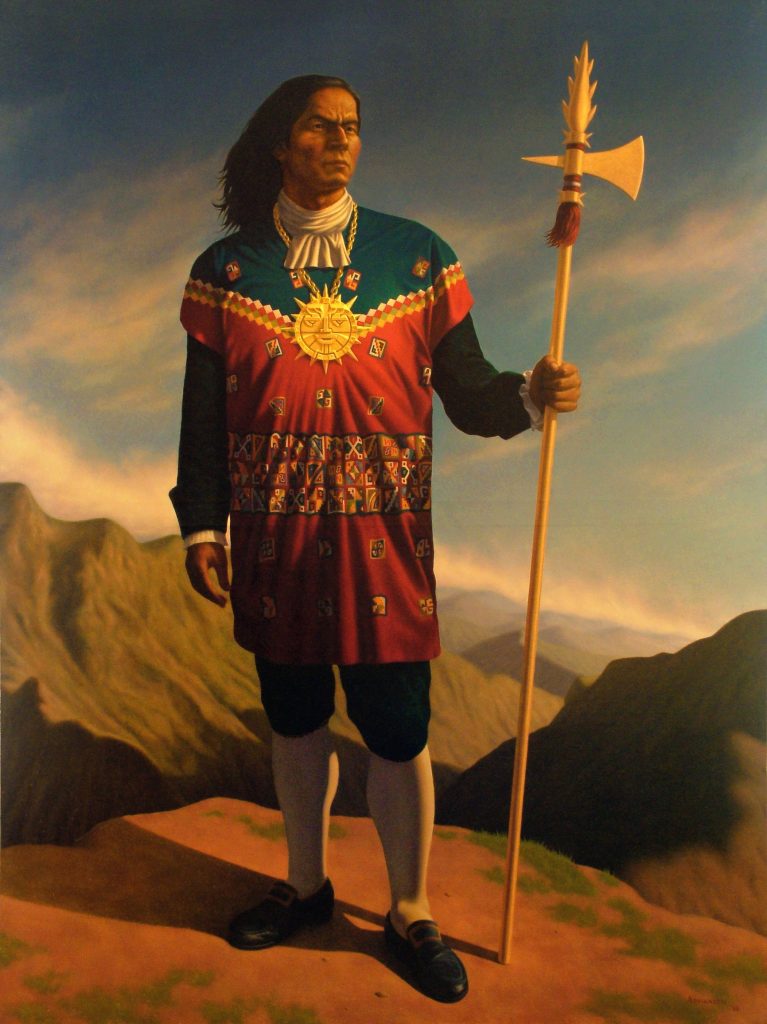Tupac Amaru II: His contribution and legacy
Tupac Amuru II, was an indigenous man, who started a rebellion that caused thousands of deaths as well as a wave of fear through the hearts of the Spanish. The rebellion started as a unity between Indigenous people, mestizos, and American born whites, however it quickly evolved into a powerful indigenous rebellion against the Peruvian elite. Around one hundred thousand people died by the end of Amaru’s journey from Cusco to modern day Bolivia, which created a change of mindset for the Spaniards treatment of the indigenous population all through South America.
Amaru, who’s birth name was José Gabriel Condorcanqui Noguera, was born in the province of Cusco in 1738 where he was baptized and received a Jesuit education. It isn’t known whether Amaru was indigenous or a mestizo, although he saw himself as having royal Incan decent and was certainly seen as indigenous to the Spanish. He later changed his name to Tupac Amaru II, claiming himself as a decedent of the last Incan Ruler, Tupac Amaru, who was killed by the Spanish.
Tupac Amuru’s motivation for starting his rebellion was to fight for indigenous rights and ultimately for equality among all people. Perhaps, due to Amaru’s indigenous decent, he couldn’t gain the support of mestizos and whites and instead was left with 6,000 natives who all had a common enemy; the elite. The motivation for the revolt thus shifted from peace and unity among all, to mere bloodshed of the Peruvian elite. The result, however deadly and creating no immediate improvement for indigenous rights, did inspire more revolts for indigenous rights as well as encourage independence movements against the Spanish.

I also did my “influential Latin American” post on Tupac Amaru II, and had many of the same points that you do. One thing I still wonder is if he was really related to Incan royalty or if that was actually a ploy to gain more indigenous support. Either way, there’s no denying that he did have an immense effect on Spanish behavior in Latin America. It’s also interesting to look into the more contemporary effects that Amaru has had, from the Uruguayan Tupamaros to the rapper Tupac Shakur.
Tupac Amaru’s legacy reminds me of that of Mexico’s subcomandante Marcos. Both had different identities/backgrounds from their constituents (Marcos and Amaru were formally educated and you mentioned that Amaru received a Jesuit upbringing), yet served as figureheads for Indigenous rights movements. One notable distinction though is Amaru’s embrace of his Indigenous identity while Marcos realized that he was merely a representative of the Indigenous people. Perhaps such movements were successful and durable because Indigenous people were able to consolidate and mobilize under and leader and use that legacy as a rallying point into the future.